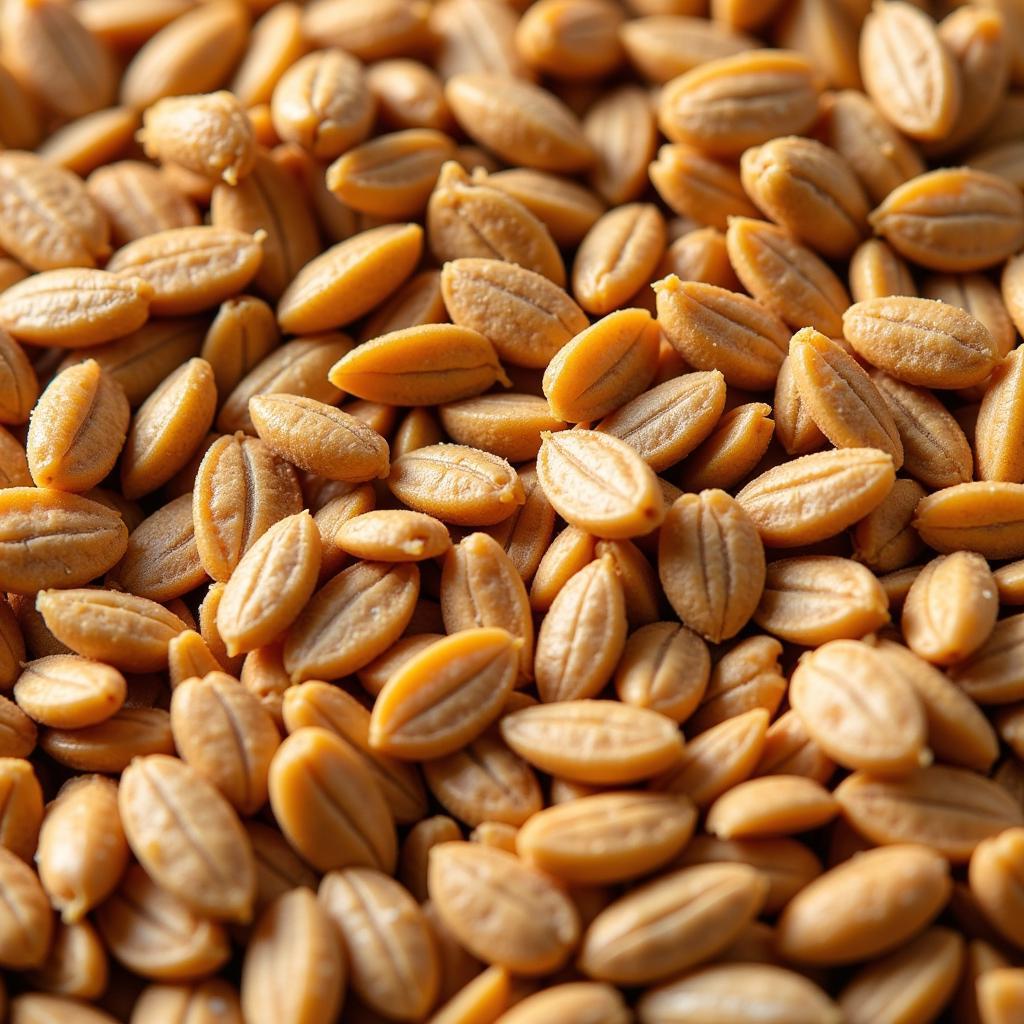Flaxseed is a popular supplement for horses, prized for its ability to add a healthy shine to coats and potentially alleviate inflammatory conditions. But a common question among horse owners is, “Does Flaxseed Make Horses Hot?” Let’s delve into this concern and explore the facts about flaxseed and its effect on your equine companion.
Understanding “Hot” in Horses
First, it’s important to clarify what “hot” means in the context of horses. We’re not talking about body temperature here. Instead, “hot” refers to a horse’s energy levels and temperament. A “hot” horse might be more energetic, excitable, or reactive than usual.
 Horse showing signs of being hot
Horse showing signs of being hot
Flaxseed and Energy Levels
Flaxseed itself doesn’t contain any stimulants that directly increase a horse’s energy levels. Unlike high-starch feeds that can cause sugar rushes, flaxseed is a source of fat, fiber, and omega-3 fatty acids. These nutrients are metabolized differently and don’t lead to sudden spikes in blood sugar.
The Potential for Indirect Effects
While flaxseed doesn’t directly make horses “hot,” some indirect factors might contribute to changes in behavior in certain individuals:
- Improved Overall Health: A healthier horse due to the benefits of flaxseed might naturally display more energy and vitality. This change wouldn’t be due to any stimulating properties but rather an improvement in their overall well-being.
- Individual Sensitivity: Just like humans, horses can have individual sensitivities to certain foods. While rare, some horses might experience a change in temperament or energy levels when introduced to flaxseed.
- Management Factors: It’s crucial to remember that various factors influence a horse’s behavior, including diet, exercise, environment, and overall management. If you notice behavioral changes after introducing flaxseed, it’s essential to assess these other factors before attributing the change solely to the flaxseed.
The Benefits of Flaxseed for Horses
Despite the concern about “hotness,” flaxseed offers numerous benefits for horses, making it a valuable addition to their diet:
- Rich in Omega-3 Fatty Acids: Flaxseed is a top plant-based source of omega-3 fatty acids, crucial for maintaining healthy skin, coat, joints, and heart health.
- Supports a Shiny Coat: The omega-3s in flaxseed are renowned for promoting a glossy, healthy coat in horses.
- Anti-Inflammatory Properties: The omega-3s also have anti-inflammatory properties, potentially beneficial for horses with inflammatory conditions such as arthritis.
- Source of Fiber: Flaxseed contributes to a horse’s fiber intake, important for digestive health.
 Close-up of flaxseed in horse feed
Close-up of flaxseed in horse feed
Incorporating Flaxseed into Your Horse’s Diet
If you’re considering adding flaxseed to your horse’s diet, start with small amounts and monitor for any changes in behavior or condition. Here are some tips:
- Choose Ground Flaxseed: Horses can’t digest whole flaxseeds efficiently. Opt for ground flaxseed or mill it yourself to ensure they reap the nutritional benefits.
- Introduce Gradually: Start with a small amount (1-2 tablespoons) and gradually increase the amount over a week or two, allowing your horse’s digestive system to adjust.
- Monitor Your Horse: Observe your horse closely for any changes in behavior, energy levels, or digestive health after introducing flaxseed.
- Consult Your Veterinarian: It’s always best to consult with your veterinarian before making any significant dietary changes for your horse. They can advise you on the appropriate amount of flaxseed for your horse’s specific needs and health status.
Conclusion
The question of whether flaxseed makes horses hot is multifaceted. While flaxseed itself doesn’t contain stimulants, individual sensitivities and overall well-being can influence a horse’s energy levels. The benefits of flaxseed, particularly its omega-3 content, make it a valuable supplement for many horses. By introducing flaxseed gradually, monitoring your horse closely, and consulting with your veterinarian, you can make informed decisions about incorporating this beneficial ingredient into your horse’s diet.
FAQs
1. Can I feed my horse whole flaxseeds?
Whole flaxseeds pass through a horse’s digestive system undigested, so they won’t receive any nutritional benefits. Always opt for ground flaxseed.
2. How much flaxseed should I give my horse?
The appropriate amount of flaxseed varies depending on factors like the horse’s size, age, activity level, and individual needs. It’s best to consult with your veterinarian for personalized recommendations.
3. Can flaxseed help with my horse’s itchy skin?
The omega-3 fatty acids in flaxseed can promote healthy skin and coat, potentially reducing itching associated with dryness. However, if your horse has persistent skin issues, it’s crucial to consult a veterinarian to rule out other underlying causes.
4. Can I feed flaxseed to my pregnant mare?
Flaxseed can be beneficial for pregnant mares due to its omega-3 content. However, it’s essential to consult your veterinarian for guidance on the appropriate amount and any potential considerations during pregnancy.
5. Where can I buy high-quality flaxseed for my horse?
You can find ground flaxseed specifically formulated for horses at most feed stores or online retailers specializing in equine supplies.
Need help with your horse? Don’t hesitate to reach out!
Phone: 0772127271
Email: [email protected]
Address: QGM2+WX2, Vị Trung, Vị Thuỷ, Hậu Giang, Việt Nam
We have a dedicated customer support team available 24/7.